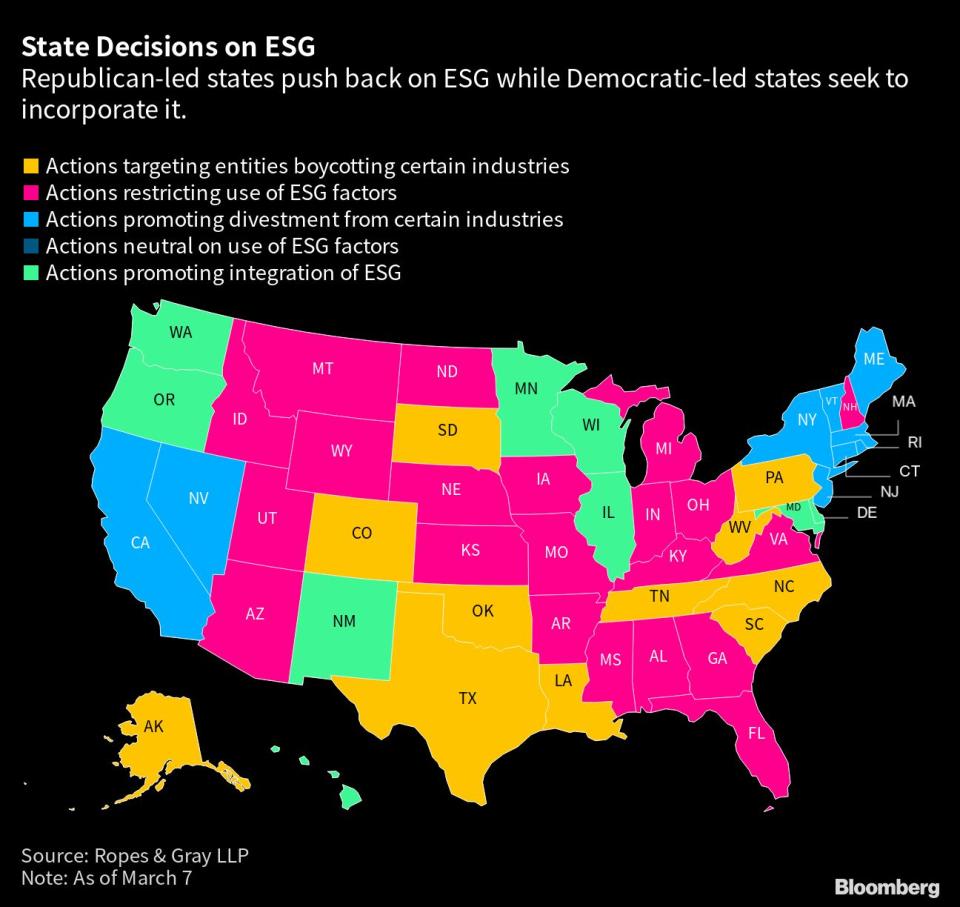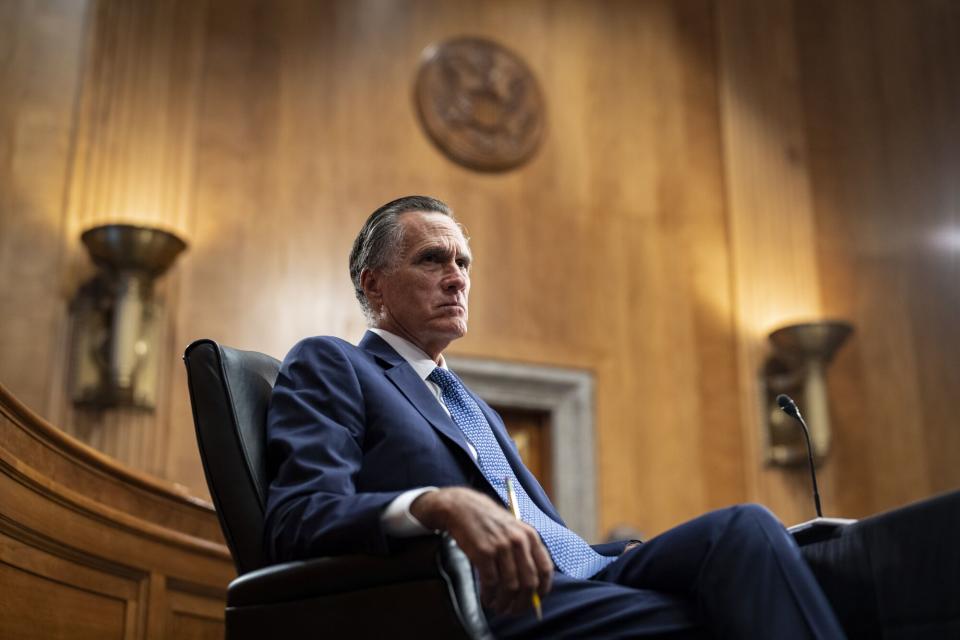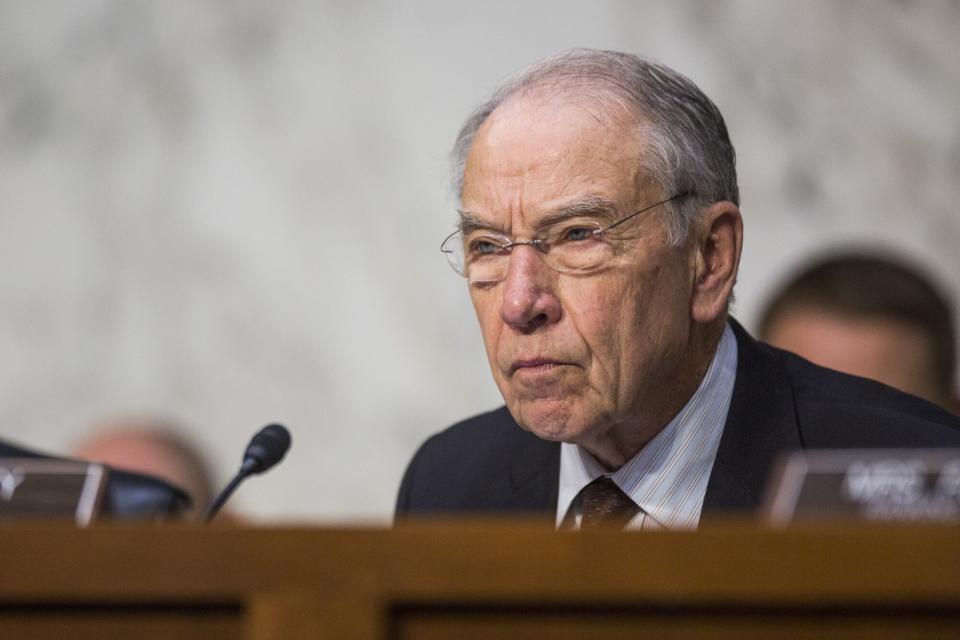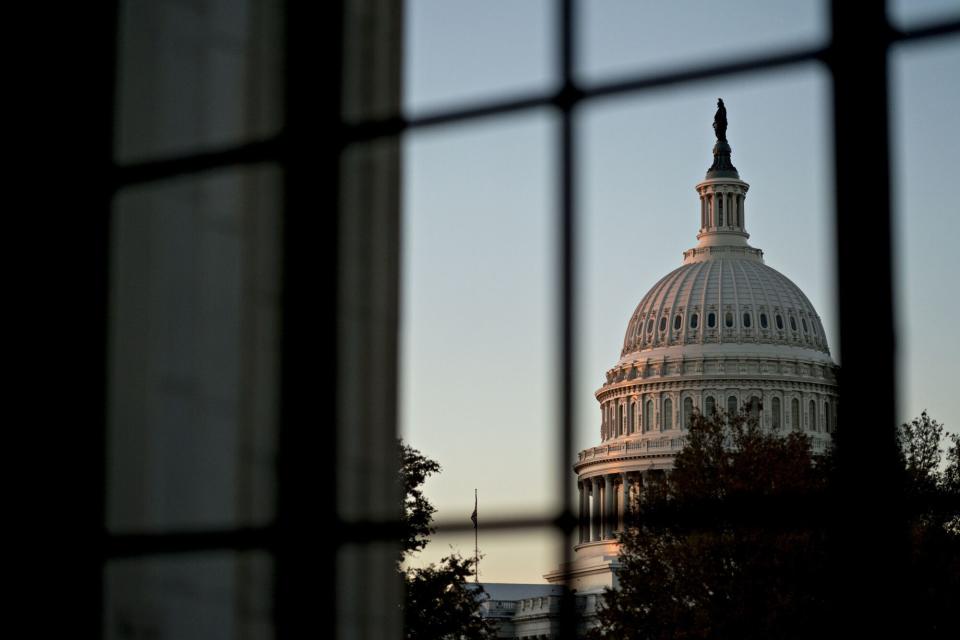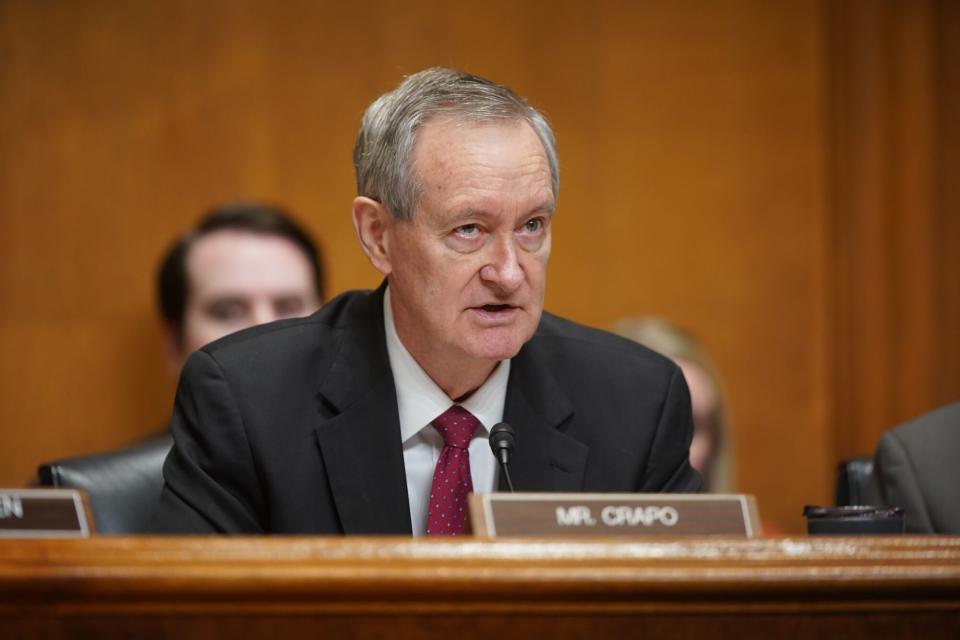These Anti-ESG Republicans Are Longtime Supporters of Green Power
- Oops!Something went wrong.Please try again later.
- Oops!Something went wrong.Please try again later.
(Bloomberg) -- Some key Republican senators who’ve slammed Wall Street’s efforts to tackle climate change are themselves big supporters of green energy.
Most Read from Bloomberg
Elon Musk’s Wealth Plunges $13 Billion as Drama Unfolds Across Empire
Airline Blunder Sells $10,000 Asia-US Business Class Tickets for $300
US, Ukraine Allies Consider Near-Total Ban on Exports to Russia
Meet the Guy Who Scored $250,000 of Tickets for $17,000 After Airline Error
The list includes Iowa’s Chuck Grassley, Mike Crapo of Idaho and Mitt Romney from Utah. All three have criticized environmental, social and governance investing—which helps channel money to clean energy—and opposed President Joe Biden’s landmark Inflation Reduction Act and its climate provisions. But each has been a long-time advocate of renewable energy in their home states, and in some cases received campaign contributions from businesses that stood to gain.
From where he sits, Grassley doesn’t see a conflict between his criticism of ESG in Washington and his green advocacy at home. His spokesman, Taylor Foy, said ESG involves “coercive elements” that are contrary to Grassley’s view that capital markets should drive a low-cost shift to cleaner energy.
While it’s no secret politicians sometimes say one thing and do another, the disconnect between words and actions is particularly stark when it involves ESG—a huge financial business that’s been vilified by Republicans. While their financial backers in Big Oil and other polluting industries are pushing opposition to sustainable energy, their constituents are likely to reward them for bringing green jobs to their states.
The IRA will potentially spark trillions of dollars in investments for everything from solar energy to charging stations. In addition to Iowa, Idaho and Utah, many of the new electric vehicle and battery factories that stand to benefit are being built in GOP-run states like Tennessee, Ohio and Georgia. And though every Republican in Congress opposed the law, many have touted the billions of climate dollars that will soon be landing in their districts as a result.
“These are contradictions,” said Cary Krosinsky, who teaches sustainable investing at Yale and Brown universities. “Republicans run the danger of advocating against things they are otherwise already doing and encouraging.”
Grassley was among a group of GOP senators who threatened dozens of law firms in November with investigations into whether their clients committed antitrust violations by taking part in “climate cartels” or “ill-advised ESG schemes.” The 89-year-old also voted last month to block a Labor Department rule that allows retirement plans to consider climate change and other ESG issues, triggering Biden’s first veto.
But for decades, Grassley has been a strong supporter of renewable energy and is even referred to as the “father” of American wind power. In the early 1990s, he authored the first tax credit for wind energy and has introduced bills to bolster biofuels, of which Iowa with its massive agriculture sector is among the biggest producers.
Grassley’s website highlights how wind energy cuts greenhouse gas emissions, and says the senator paved the way for Iowa to shrink its carbon footprint. His website also says the markets will ultimately drive a low-cost shift to cleaner fuels if they’re competitive.
The senator counted biofuel maker Poet LLC among his top donors, contributing almost $36,000 during his last campaign, according to data compiled by the watchdog group Open Secrets. He also received $27,500 from ethanol maker Growth Energy and the same amount from renewables-development giant NextEra Energy Inc., the Washington-based group reported. Wind turbine supplier General Electric Co. contributed more than $23,000, according to Open Secrets.
After Biden took office, Grassley urged him to keep his pledges on green energy, saying wind power will be vital to create jobs and cut emissions. The White House estimates that Iowa will attract almost $25 billion of investments in large solar, wind and storage projects through the end of the decade as a result of the IRA.
In Idaho, there’s a similar contradiction at work. Crapo, like Grassley, has attacked ESG investing on several fronts, despite his efforts to bolster clean energy.
For years, the 71-year-old opposed federal pension guidance on ESG, claiming it would sacrifice profits in favor of lowering emissions. Last May, Crapo was among 10 Idaho officials who blasted credit-rating company S&P Global for producing a report on ESG risks for states, describing the metrics as “politically biased.” Then in June, he co-hosted a meeting focused on ESG in which he claimed the Biden administration is advancing a “radical climate and financial” agenda.
But the previous year, Crapo introduced a bipartisan bill with one of the fiercest climate advocates in Congress, Democratic Senator Sheldon Whitehouse of Rhode Island, which would help boost innovation in clean-energy technologies. “If we are to meet long-term emissions targets without sacrificing affordable electricity, we need to invest in on-the-horizon technologies,” Crapo said at the time. The bill didn’t become law.
For decades Crapo has promoted Idaho’s clean energies such as geothermal. A former co-chair of the Senate Renewables and Energy Efficiency Caucus, he says the US must pursue energy from many sources, not just fossil fuels, to meet growing energy demand. A spokeswoman, when asked about his seemingly divergent positions, said Crapo has opposed efforts by financial firms and the government to politicize financial decisions.
Crapo’s top donors over the past five years included more than $51,000 from the ClearPath Foundation, a Washington-based conservative clean energy group. Meanwhile, Idaho is set to attract about $320 million for large solar, wind and storage projects as a result of the IRA, according to the White House.
Then there’s Romney, the 2012 presidential nominee. He was among a dozen or so Utah lawmakers who criticized S&P Global last year for its ESG analysis of states. He also recently blasted the federal pension ESG rule, saying it politicizes retirement savings to favor Biden’s “ideological preferences.”
Yet Romney, 76, a member of the Senate Climate Solutions Caucus, has said the way to address climate change is through private sector innovation. He backs funding for things like solar, nuclear and climate research. He’s also a rare Republican that’s called for a carbon tax and even criticized Democrats for not including it in the IRA. His spokeswoman declined to comment.
His top donors included the utility Dominion Energy Inc., which donated $36,000 over the past five years, according to Open Secrets data. The White House estimates Utah will benefit from about $1 billion of investments for large renewable energy projects resulting from the IRA.
--With assistance from Steven T. Dennis.
Most Read from Bloomberg Businessweek
With 4% Savings Accounts, Is It Finally Time to Break Up With Your Bank?
The Repo Man Returns as More Americans Fall Behind on Car Payments
The Nord Stream Explosion Remains an Unsolved Mystery Gripping Europe
How a Brazen Plot to Rig Oil Auctions Cost Venezuela Billions
©2023 Bloomberg L.P.

